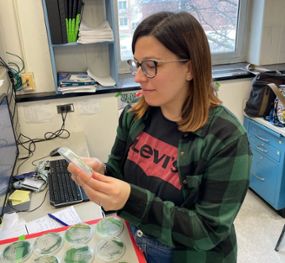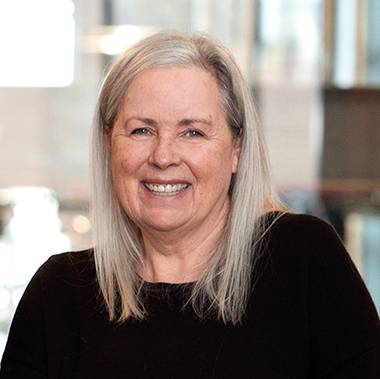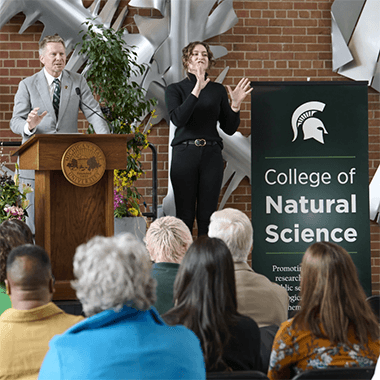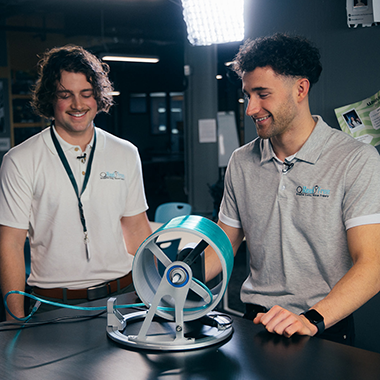Postdoc María Santos Merino awarded the Clarence Suelter Endowed Postdoctoral Fellowship
Listen to the article

María Santos Merino, postdoctoral researcher from the Ducat lab at the MSU-DOE Plant Research Laboratory (PRL), is the first to be awarded the Clarence Suelter Endowed Postdoctoral Fellowship Award from the Department of Biochemistry and Molecular Biology (BMB).
This fellowship, new to the department in 2022, recognizes outstanding accomplishments and aims to encourage career development. María plans to use the monetary award to visit the University of Turku in Finland to learn a new technique, Membrane Inlet Mass Spectrometry (MIMS).
In March 2021, Santos Merino published a paper in the journal Proceedings of the National Academy of Sciences (PNAS). In this research, she engineered two metabolic pathways into cyanobacteria – a photosynthetic bacteria. This proved to increase the organism’s photosynthetic performance and partially protect it from the harmful effects of absorbing too much light.
This opportunity will allow her to acquire a deeper knowledge in photosynthetic techniques, skills she began to develop at MSU through an internal collaboration between the labs of BMB researchers Danny Ducat and David Kramer and published in the aforementioned article.
The PRL has a MIMS, instrument in the laboratory of plant biologist Berkley Walker, which is currently only outfitted for solid samples (plant leaves). To learn how to use MIMS for liquid samples (cyanobacterial/algal cultures), María will travel to the University of Turku in Finland with the support of the fellowship.
Santos Merino received her Ph.D. at the Institute of Biotechnology and Biomedicine of Cantabria in Spain. Scientific funding opportunities for postdoctoral researchers are limited in Spain, and she found herself looking for opportunities in other countries to continue making progress in her scientific career.
“Since I joined MSU, I feel like my scientific career has advanced a lot, because I have had more opportunities and funding to do long-term experiments,” Santos Merino said. “It has made me more comfortable to explore new possibilities that I could not even think of in Spain.”
Santos Merino joined Ducat’s lab in 2018. She hopes to someday run her own lab at a university.
Banner image: A collection of mutant Cyanobacteria on agar plates. Credit: Maria Santos Merino



